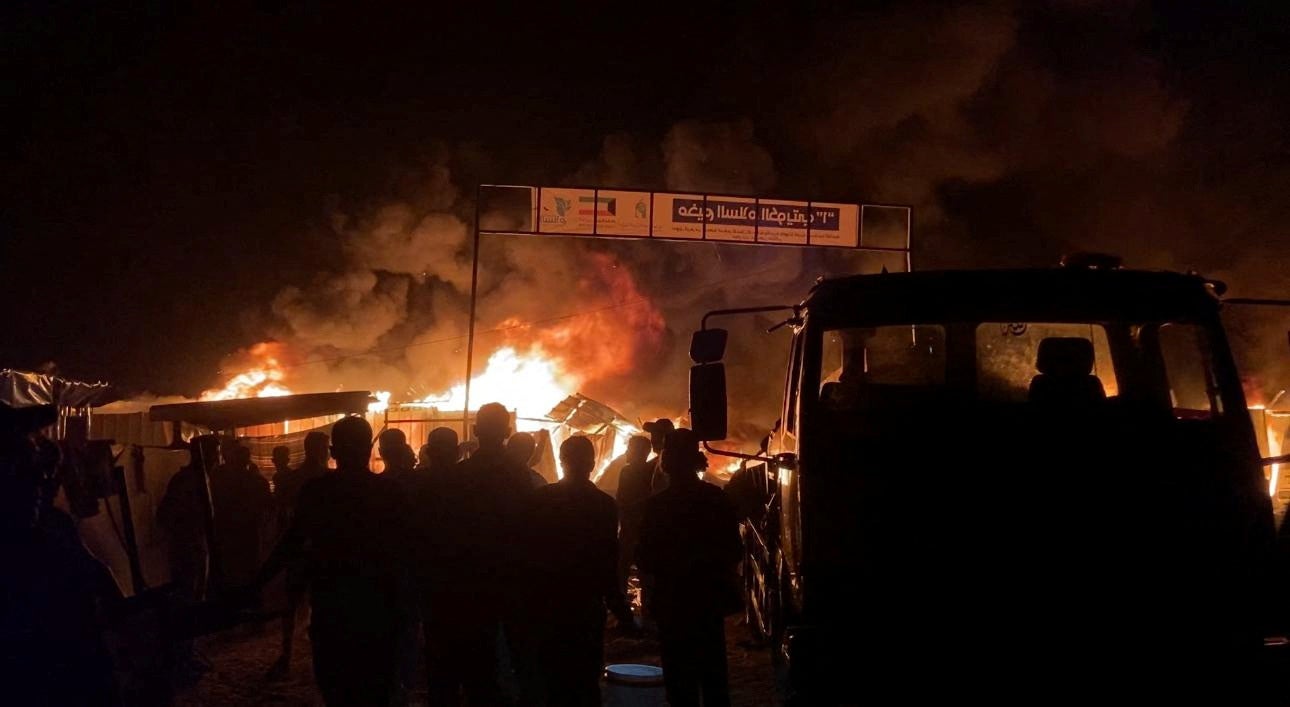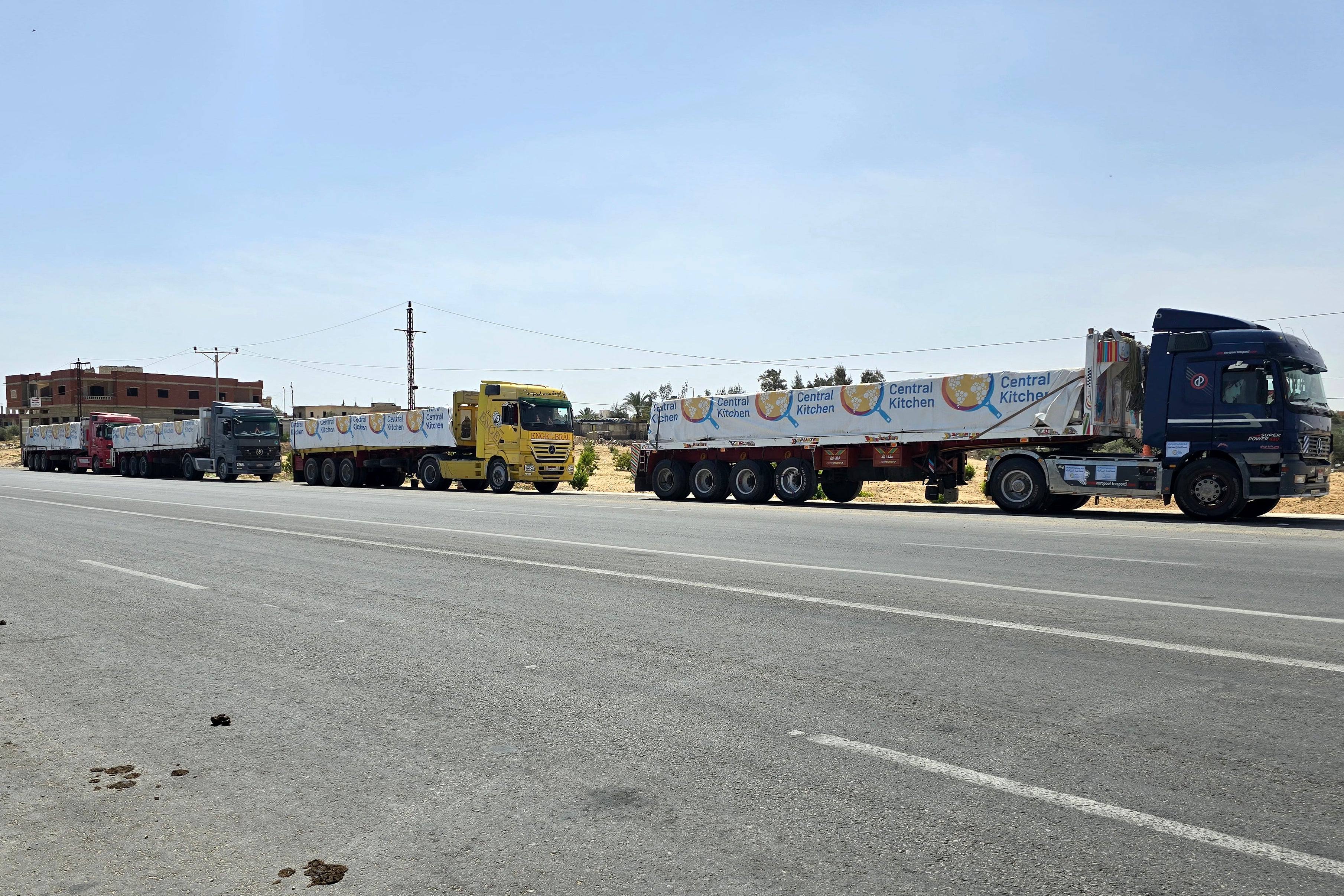At least 50 people were killed and dozens more were injured by an Israeli airstrike on Rafah city in southern Gaza, Palestinian authorities have said.
The health ministry said that most of those killed and injured in Rafah had been women and children, in an area where thousands of people had been taking shelter after being instructed to take refuge in the southern region of the besieged enclave.“Numerous others were trapped in flaming debris,” said the officials.
The attacks came two days after the International Court of Justice ordered Israel to end its military offensive in Rafah, where more than half of Gaza‘s 2.3 million population had sought shelter before Israel’s incursion earlier this month. Tens of thousands of people remain in the area while many others have fled.
Confirming the assault, Israeli military said its air force struck a Hamas compound and that the strike was carried with “precise ammunition and on the basis of precise intelligence”.
It added: “The IDF is aware of reports indicating that as a result of the strike and fire that was ignited several civilians in the area were harmed. The incident is under review.”

Graphic footage from the scene shared by the Gaza health ministry showed widespread destruction.The International Committee of the Red Cross said its field hospital in Rafah was receiving an influx of casualties, and that other hospitals also were taking in a large number of patients.
Senior Hamas official Sami Abu Zuhri described the attack in Rafah as a “massacre”, holding the United States responsible for aiding Israel with weapons and money.
“The air strikes burnt the tents, the tents are melting and the people’s bodies are also melting,” said one of the residents who arrived at the Kuwaiti hospital in Rafah.
A spokesperson with the Palestinian Red Crescent Society said the death toll was likely to rise as search and rescue efforts continued in Rafah’s Tal al-Sultan neighbourhood, about 2km northwest of the city centre. It said the target of the strike was part of what Israel had designated as a “humanitarian area” and had not been subject to Israeli evacuation orders earlier this month.
The charity ActionAid said its activists witnessed the attack, which it described as an “inhumane and barbaric act”. “We are outraged and heartbroken by the recent attacks in West Rafah, where Israeli fighter jets launched eight missiles at makeshift shelters housing internally displaced persons (IDPs) next to UNRWA warehouses stocking vital aid,” the charity said in a statement.
“These shelters were supposed to be safe havens for innocent civilians, yet they became targets of brutal violence. Children, women, and men are being burned alive under their tents and shelters.”
Earlier on Sunday, the Israeli military said eight projectiles were identified crossing from the area of Rafah, the southern tip of the Gaza Strip, setting off air raid sirens as far away as Tel Aviv. There were no reports of casualties in what appeared to be the first long-range rocket attack from Gaza since January.
Israel’s military said eight projectiles crossed into Israel after being launched from Rafah and “a number” were intercepted, and the launcher was destroyed. Hamas’ military wing claimed responsibility for the rocket attack.
Prime minister Benjamin Netanyahu was convening his war cabinet later on Sunday to discuss continued operations in Rafah. Israel argues the UN court’s ruling allows room for some military action there.
In a statement on its Telegram channel, the Hamas al-Qassam Brigades said the rockets were launched in response to “Zionist massacres against civilians”.

Israel says it wants to root out Hamas fighters holed up in Rafah and rescue hostages it says are being held in the area, but its assault has worsened the plight of civilians and caused an international outcry.
On Sunday, Israeli strikes killed at least five Palestinians in Rafah, according to local medical services. The Gaza health ministry identified the dead as civilians.
Israeli tanks have probed around the edges of Rafah near the crossing point from Gaza into Egypt, and residents say they have entered some of its eastern districts, but have not yet entered the city in force since the start of operations in the city earlier this month.
Israeli war cabinet minister Benny Gantz said the rockets fired from Rafah “prove that the [IDF] must operate in every place Hamas still operates from”.
Defence minister Yoav Gallant held an operational assessment in Rafah where he was briefed on “troops’ operations above and below the ground, as well as the deepening of operations in additional areas with the aim of dismantling Hamas battalions”, his office said in a statement.
Itamar Ben Gvir, a hardline public security minister who is not part of Israel’s war cabinet, urged the army to hit Rafah harder. “Rafah with full force,” he posted on X.
Nearly 36,000 Palestinians have been killed in Israel’s offensive, Gaza’s health ministry says. Israel launched the operation after Hamas-led militants attacked southern Israeli communities on October 7, killing around 1,200 people and seizing more than 250 hostages, according to Israeli tallies.
Earlier on Sunday, dozens of aid trucks entered Gaza from southern Israel under a new agreement to bypass the Rafah crossing with Egypt after Israeli forces seized the Palestinian side of it earlier this month. Israel’s military said 126 aid trucks entered via the nearby Kerem Shalom crossing.
But it was not immediately clear if humanitarian groups could access the aid — including medical supplies — because of fighting. The crossing has been largely inaccessible because of Israel’s offensive in Rafah. United Nations agencies say it is usually too dangerous to retrieve the aid. The World Health Organization last week said an expanded Israeli incursion in Rafah would have “disastrous” impact.”
“With the humanitarian operation near collapse, the secretary-general emphasizes that the Israeli authorities must facilitate the safe pickup and delivery of humanitarian supplies from Egypt entering Kerem Shalom,” the spokesperson for UN chief Antonio Guterres said in a statement.
Egypt refuses to reopen its side of the Rafah crossing until control of the Gaza side is handed back to Palestinians. It agreed to temporarily divert traffic through Kerem Shalom, Gaza‘s main cargo terminal, after a call between US president Joe Biden and Egyptian president Abdel Fattah el-Sissi.




















